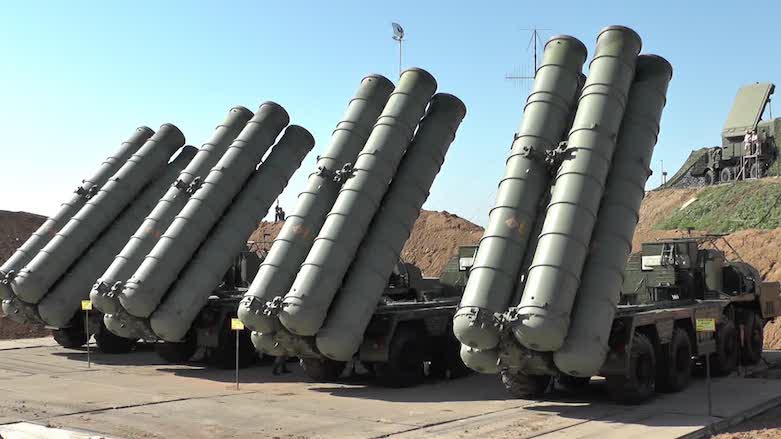WASHINGTON DC (Kurdistan 24) – The US Congress returned to Washington on Monday after the Thanksgiving holiday. With the resumption of their work, key senators announced their intention to move ahead with legislation to sanction Turkey for its purchase of the Russian air defense system, the S-400.
On Monday, Sen. Chris Van Hollen (D, Maryland) and Sen. Lindsey Graham (R, South Carolina) sent Secretary of State Mike Pompeo a letter, pressing him to do just that.
“The time for patience has long expired. It is time you applied the law,” they wrote. “Failure to do so is sending a terrible signal to other countries that they can flout US laws without consequence.”
A law, passed in 2017, known as CAATSA (Countering America’s Adversaries Through Sanctions Act), basically requires the US to impose sanctions on countries purchasing Russian military equipment.
The Democratic-controlled House of Representatives has already passed a bill to sanction Turkey, but the Republican-led Senate has yet to act, in large part, because President Donald Trump asked for a delay, as he sought to reach an understanding with Turkish President Recep Tayyip Erdogan.
However, on Monday, Sen. Jim Risch (R, Idaho), Chairman of the Senate Foreign Relations Committee, stated that he would take up legislation to sanction Turkey in his committee next week. “My patience wore thin a long time ago,” Risch said.
The House bill passed by an overwhelming majority and the same is expected in the Senate—assuming that Sen. Majority Leader Mitch McConnell (R, Kentucky) allows a vote on the issue.
Such considerations were reflected at the NATO meeting in London on Tuesday. Trump was asked about imposing sanctions on Turkey for the S-400, and he responded: “We’re looking at it now,” adding, “We’ll be meeting with Turkey in a little while, and also tomorrow.”
Trump blamed the Obama administration for the problem, saying that Turkey first tried to buy the US air defense system, the Patriot, but was repeatedly rebuffed, so Ankara turned to Russia.
However, French President Emmanuel Macron, who has been open about disagreements with his US counterpart, was sitting opposite Trump and explained that Ankara had had a third option.
Turkey was offered a European air defense system, the SAMP/T, but rejected the offer, although it was “totally compliant with NATO,” Macron said. “So, they decided not to be compliant with NATO.”
Indeed, Macron earlier asked, “How is it possible to be a member of [NATO], to work with our office, to buy our materials, to be integrated, and to buy the S-400 from Russians?”
Risch, who was a major figure in the Nov. 13 White House meeting involving Trump, Erdogan, and five Republican senators, spoke similarly in a Defense News interview published on Tuesday.
Risch explained that at that meeting, Erdogan “was presented with a plan by the United States that would allow him to get out of the hole he’s dug himself into.”
“He couldn’t have the S-400,” Risch said, “but we could get him out of it without there being any financial detriment” to Turkey.
“I can’t go into the details,” Risch continued, but Erdogan “didn’t say ‘yes,’ he didn’t say ‘no.’” However, even while “on the airplane, on the way home, Erdogan told the reporters that he hasn’t given up on the S-400s.”
“As soon as I saw that,” Risch explained, “I said, ‘Well I’m gonna take him at his word.’” So, the senator decided to move ahead with sanctions legislation, “sooner, rather than later.”
Risch also emphasized that other countries were watching how the US deals with Turkey. “The world’s got to know we’re serious about CAATSA sanctions. You can’t do this [buy the S-400], and this is particularly true with a NATO member. [It’s] not compatible with membership in NATO, nor is it compatible” with owning the F-35, America’s most advanced fighter plane.
“This isn’t about purchasing US equipment,” Risch stressed. “This is about purchasing Russian equipment. If they abandon Russian purchases and turn to Sweden, France, or Germany, we’re perfectly satisfied with that.”
“This has got to be across the board,” he affirmed. “This is something we feel very strongly about, and it needs to be enforced.”

